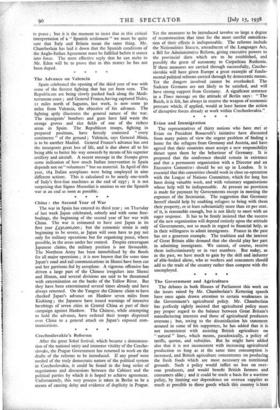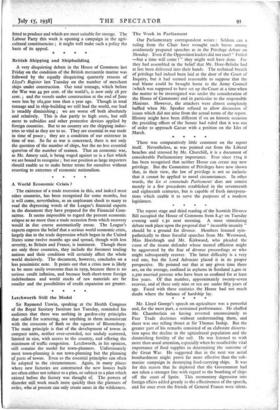The Government and Agriculture The debates in both Houses of
Parliament this week on the issues raised by Mr. Chamberlain's Kettering speech have once again drawn attention to certain weaknesses in the Government's agricultural policy. Mr. Chamberlain has perfectly rightly insisted that agricultural policy must pay proper regard to the balance between Great Britain's manufacturing interests and those of agricultural producers overseas ; but, owing to the dissatisfaction his statement aroused in some of his supporters, he has added that it is not inconsistent with assisting British agriculture on " natural " lines, which means, paradoxically, a policy of tariffs, quotas, and subsidies. But he might have added also that it is not inconsistent with increasing agricultural production so long as at the same time consumption is increased, and British agriculture concentrates on producing the fresh foods which are most necessary on nutritional grounds. Such a policy would inflict no loss on over- seas producers, and would benefit British farmers and consumers alike ; and it could be made a basis for a wartime policy, by limiting our dependence on oversea supplies as much as possible to those goods which this country is least fitted to produce and which are most suitable for storage. The Labour Party this week is opening a campaign in the agri- cultural constituencies ; it might well make such a polidy the basis of its appeal.
* * *











































 Previous page
Previous page